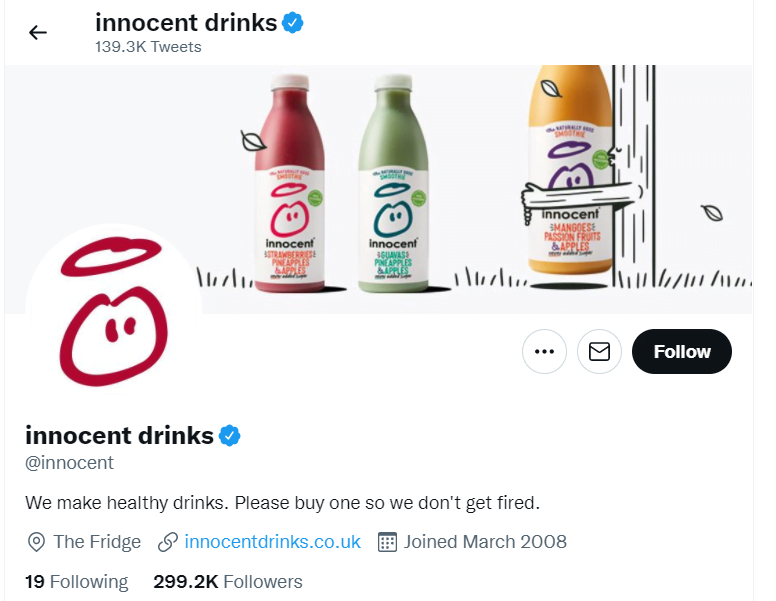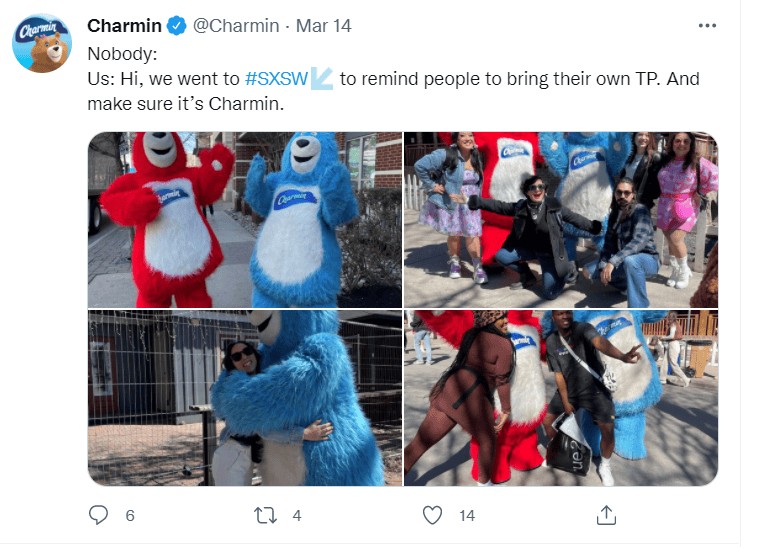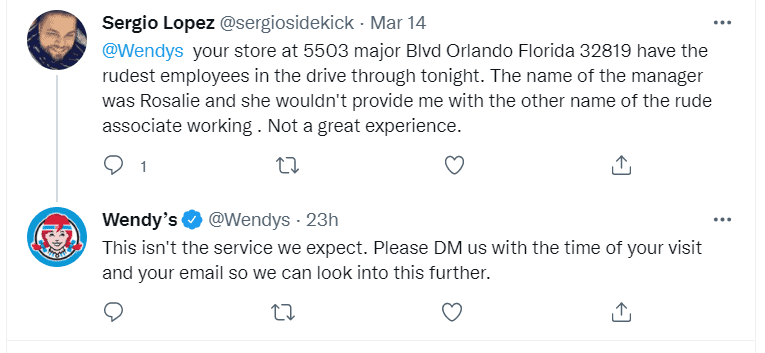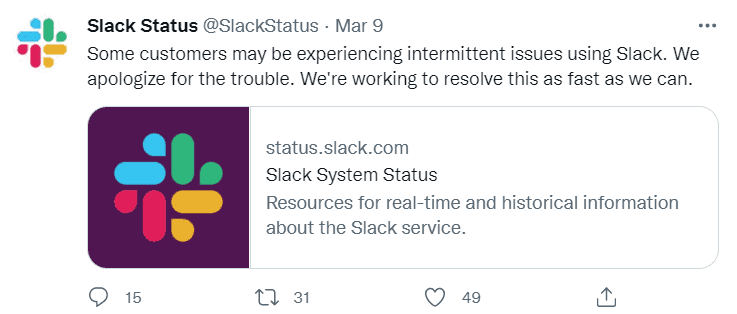Twitter is an excellent way to connect with customers and promote your brand. But with so many users and tweets, it can be challenging to stand out. Here are 17 Twitter best practices to help you get the most out of this social media platform.
[playht_player width=”100%” height=”175″ voice=”Mark”]
1. Know your goals and keep your target audience in mind
Before you start tweeting, it’s essential to know what you want to achieve with Twitter. Do you want to increase brand awareness? Drive traffic to your website? Get more customers? Build brand loyalty? Once you set your goals, you can create a Twitter strategy to help you achieve them. And you’ll know which of these other Twitter best practice ideas you need to implement.
When creating content for Twitter, always keep your target audience in mind. What will they be interested in? What kind of information do they want to see? By creating tweets that appeal to your target audience, you’ll be more likely to engage them and achieve your goals.
2. Create a complete Twitter profile
Best practices for Twitter work well with a complete profile. Ensure that your Twitter profile is complete and up-to-date, with a strong bio, profile photo, and cover image. Ensure that you use keywords in your bio so people can easily find you when they search for topics related to your business. For example, here’s the catchy profile of innocent drinks.

Creating a complete and keyword-rich profile will help you attract more followers and get found more easily. Your Twitter profile is your first impression on potential customers, so make sure it’s a good one!
3. Tweet regularly
The third Twitter best practice is to tweet regularly to keep your followers engaged. But don’t just tweet for the sake of tweeting – make sure your tweets are interesting and relevant to your audience. Ensure that you mix up your content and post tweets that include photos, videos, and links.
Retweeting other users’ content is also a great way to engage with your followers and share relevant information. You can also use analytics tools to see when your tweets get the most engagement and plan your content accordingly.
4. Keep your tweets concise
Twitter is all about brevity, so make sure your messages are clear and to the point. Ensure that you use strong verbs and avoid using too many hashtags or @mentions, making your tweets difficult to read. No one wants to wade through a long, rambling tweet, so keep it short and sweet. For example, here’s a tweet from Charmin promoting their brand at the SXSW event.

5. Use relevant keywords
Using relevant keywords are another best practices for Twitter. Similar to any other form of marketing, it’s essential to use relevant keywords in your tweets. Use keywords that describe your business or product, and make sure you’re using them naturally and interestingly. Don’t stuff your tweets with keywords – instead, focus on creating quality content that will appeal to your target audience.
6. Use hashtags
Hashtags are a great way to reach a wider audience and promote your brand on Twitter. Ensure that you use relevant hashtags in your tweets, and search for popular hashtags in your industry to see what others are saying. Hashtags are an excellent way to reach a wider audience, but using too many can make your tweets look spammy. Choose a few relevant hashtags and use them sparingly.
7. Pay attention to the tone of your tweets
The tone of your tweets should match the tone of your brand. If you’re a serious business, your tweets should reflect that. On the other hand, your tweets should be lighthearted and playful if you’re a fun and quirky brand. Please ensure that your tone of voice is consistent across your tweets. For example, Wendy’s is a brand that’s famous for roasts and witty tweets.

As you create content for Twitter, be mindful of making it inclusive. Avoid using sexist, racist, or homophobic language, and think about how people from different backgrounds might interpret your tweets. By creating an inclusive environment on Twitter, you’ll attract more followers and build a stronger brand.
It’s easy to get caught up in the moment and tweet something you may later regret. Avoid tweeting anything controversial, offensive, or inflammatory. We all make mistakes, but thinking before you tweet is essential. Once something is out there, you can’t take it back. Stick to positive topics that help promote your brand in a positive light.
8. Engage with other users and build a relevant following
One of the popular best practices for Twitter is user engagement. Twitter is an excellent platform for engaging with customers and other businesses in your industry. Follow other users, retweet interesting content, and join in on conversations. Respond to tweets, even if they’re negative. It’s essential to engage with your audience, even if they’re not singing your praises. Showing that you’re responsive and open to feedback will go a long way. Use a poll maker to get useful feedback from your followers.
It’s not all about the numbers, but a relevant following can do wonders for your business. To build a relevant following, start by finding and following people in your industry. Many of these people will follow you back, and you’ll quickly build up a list of relevant, engaged followers. By building a relevant following, you can create a community of people interested in what you have to say.
9. Plan for customer support
Customers often reach out to businesses on Twitter for customer support. If you’re not prepared to handle customer service inquiries, you could do more harm than good. If a customer is rude or uncooperative, it’s best to take the high road and avoid getting into a Twitter fight. Ofcourse, you should stand up for yourself if someone is blatantly attacking you or your business.
Ensure that you have a proper plan in place to handle customer support issues that arise on Twitter. By being prepared, you can avoid any negative PR and turn a potential crisis into an opportunity to show off your excellent customer service. Here’s an example of Wendy’s responding to a customer service issue on Twitter.

10. Have a plan for crisis management
No one wants to think about a crisis, but it’s essential to be prepared if something goes wrong. Whether it’s a natural disaster, product recall, or data breach, you need to have a plan for communicating with your customers on Twitter. Here’s an example of Slack addressing product issues on Twitter.

In a crisis, it’s essential to be transparent and honest. Customers will appreciate your candor and will be more likely to forgive you if you’re open and honest about what’s going on. We have repeatedly seen that being transparent goes a long way, especially in the age of social media. By having a plan to handle crises, you can avoid making a bad situation worse.
11. Take advantage of rich media
Leveraging rich media is another Twitter best practice. Tweets with images, videos, or other forms of rich media tend to perform better than those without. So if you have something visual to share, don’t hesitate to do so! Instead of using the same images that you share on other social media platforms, take the time to create custom visuals for Twitter. Your visuals should align with your brand and be tailored to the Twitter platform. This will help you stand out from the competition and get more engagement on your tweets.
You can also use live video to connect with your followers in real-time. Video is a great way to show off your products, give a behind-the-scenes look at your business, or just have some fun with your followers. There are endless possibilities for using rich media in your tweets, so get creative and experiment with the media that works best for you and your audience.
12. Use Twitter analytics
Twitter provides a wealth of data about your tweets and your audience. Some metrics you can track include impressions, engagement, and click-through rate. Use this data to see what’s working well and what could be improved.
For example, if you notice that a specific type of tweet performs remarkably well, try to replicate that success in future tweets. On the other hand, if you see that a particular type of tweet isn’t getting much engagement, you may want to avoid that in the future.
Use this data to see what’s working and what isn’t, and adjust your strategy accordingly. By understanding your Twitter analytics, you can fine-tune your content and ensure that your tweets reach the right people.
Several great third-party tools can help you get the most out of Twitter. Hootsuite and Buffer are two great options for scheduling tweets, managing multiple accounts, and analyzing your Twitter analytics. Several tools can help you find relevant content to share with your followers.
13. Keep an eye on the competition
Another Twitter best practice is to keep an eye on what your competition is doing on Twitter. See what kind of content they’re sharing, how often they’re tweeting, and who their followers are.
You can also use Twitter’s advanced search features to find tweets that mention your competitor’s product or service. This is an excellent way to see what people are saying about them and get some ideas for your own content. You can learn from your competition, so don’t be afraid to look at what they’re doing right (and wrong).
14. Watch out for trends
Engaging on Twitter is all about being timely and relevant, so it’s essential to watch the latest trends. By understanding what’s happening in the world, you can ensure that your tweets are relevant and interesting to your audience.
See what’s trending in your industry and find ways to join the conversation. You can also use Twitter’s search function to find specific keywords and hashtags. This is an excellent way to see what people say about your brand, product, or service.
You can also use trends to your advantage by piggybacking on popular hashtags or topics. Just be sure not to overdo it – too much self-promotion will turn off your followers. Instead, focus on adding value to the conversation, and you’ll be sure to get noticed.
15. Don’t be afraid to experiment
One of the best practices for Twitter is the ability to experiment. Twitter is a great place to experiment with new content and strategies. Because it’s such a fast-paced platform, you can quickly see what works and what doesn’t. So if you’re feeling stuck, don’t be afraid to try something new.
This could mean anything from changing your content strategy to trying out a new tool. The important thing is to keep an open mind and be willing to experiment. Twitter is constantly evolving, so it’s essential to stay flexible and adaptable.
16. Engage in social listening
Social listening is the process of monitoring social media for mentions of your brand, product, or industry. It is an excellent way to see what people are saying about you and your business, and it can also help you identify potential customers or leads.
You can also use a social listening tool like Hootsuite Insights to see what’s being said about your brand across the web. Use social listening to your advantage, and you’ll be sure to get more out of your Twitter presence.
17. Promote your Twitter account
Make sure your website and other social media accounts promote your Twitter account. Include links to your Twitter profile in your email signature, on your website, and in any other marketing materials you create. You can also use paid advertising to promote your tweets to a broader audience.
Twitter offers several different advertising options to help you reach your target audience. Promoted tweets, for example, are tweets that are given preferential placement in users’ timelines. You can also use Twitter’s ad platform to create targeted campaigns based on interests, keywords, or other factors.
Final Thoughts on Twitter Best Practices
Twitter is a powerful tool for businesses, but it takes some effort to stand out from the crowd. Although it takes time to build a following on Twitter. Don’t expect overnight success – instead, focus on creating quality content and engaging with other users and using a Twitter best practice that makes sense.
If you keep at it, you’ll eventually see the results you’re looking for. By following these Twitter best practices, you can make sure you’re getting the most out of Twitter and connecting with your audience meaningfully. Do you have any other Twitter best practices to share? Let us know in the comments below.

